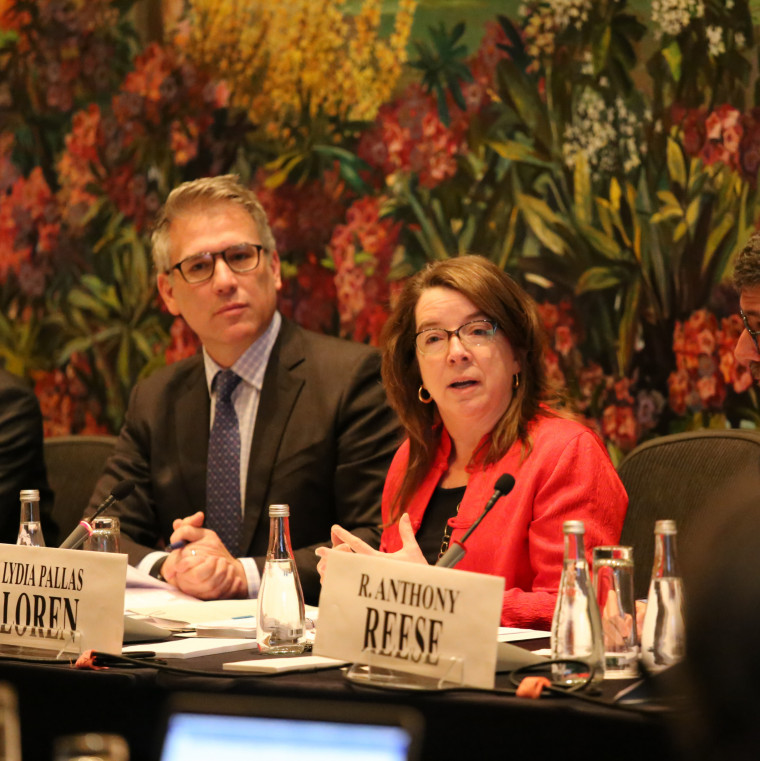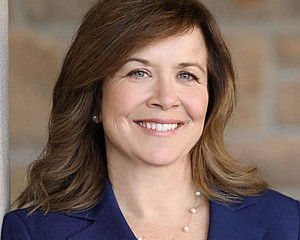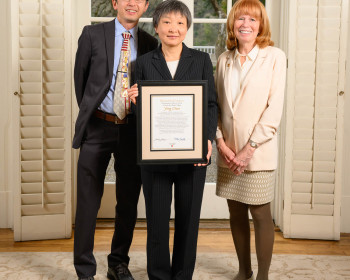Copyright Catches Up
Professor Lydia Pallas Loren & colleagues work to clarify evolving copyright law.
Open gallery

In 2015, the American Law Institute (ALI) appointed the Henry J. Casey Professor of Law Lydia Pallas Loren to serve as one of five Reporters on the Restatement of Copyright. Once completed, the Restatement of Copyright will be a resource for those working in, or affected by, the copyright law. In May 2022, the membership of the ALI approved tentative draft #3 (it had previously approved tentative draft #2 in 2021). Combined, these drafts contain 44 separate sections that are the authoritative position of the ALI and can be cited to, and by, courts.
“The Restatement is a synthesis of the law as articulated in the Copyright Act and interpreted and applied by courts,” explained Loren. The approved drafts reflect recent developments in caselaw and precedent as it pertains to copyright law.
ALI began issuing Restatements in the early 1900s to help generalist lawyers and judges understand the underlying principles of the common law that the ALI’s founders believed had become obscured by the ever-growing mass of court decisions.
Each section of the Restatement begins with a clear statement of a particular legal rule or principle (referred to as the “blackletter”), followed by comments and illustrations. Each section also contains Reporters’ Notes, where the Reporters can provide additional insight and citations. The Restatements offer attorneys and judges ways to understand how elements of law were applied previously, how those do or do not relate to the issue at hand, and how those applications are interconnected. The Restatement does not seek to set out what the law should be, rather it seeks to state what it is.
This is the first time copyright law has been the subject of a restatement. Prior to the Restatement of Copyright, only treatises, often written by a single individual, were a main source relied on by lawyers and judges when seeking to make sense of an extensive body of caselaw. Begun in 2015, the project is expected to be completed by 2025. The multi-volume Restatement focuses on broadly applicable points of law which are central to the doctrine of copyright, and which reflect technological and industry evolution. Currently, the approved sections address topics including the scope of copyright protection, the nature of authorship including joint authorship and the work-made-for-hire doctrine, the reproduction right, the distribution right and the first sale doctrine, and the civil remedies available for infringement.
The process by which a Restatement is formalized is multi-layered. The small team assigned as “Reporters” first reviews the statutory provisions, the case law, and relevant treatises and academic articles. The Reporters create a draft which is then carefully reviewed by a group of Advisors appointed by the ALI, as well as by a group of interested ALI members (referred to as the Members Consultative Group), who provide feedback to the Reporters on that draft. After this stage has concluded, the draft has been carefully reviewed by 80 - 120 lawyers and judges with expertise in copyright law who have a keen interest in the topic. Reporters consider all comments from this input to create a draft for review and approval by the ALI Council (ALI’s governing body). Ultimately the draft is then presented at an annual meeting of the ALI for the review and approval of the full membership of the ALI.
“Working with my co-reporters, the advisors, and all of the MCG members has been an incredibly rewarding part of my professional life. These are people who are copyright experts and want to help others understand this important area of law that can, at times, be confusing and even counterintuitive,” Professor Loren noted. She particularly enjoys the collaborative aspect of the team of Reporters: Professor Christopher Jon Sprigman (New York University School of Law), Professor Daniel J. Gervais (Vanderbilt University Law School), Professor R. Anthony Reese (University of California, Irvine School of Law), and Professor Molly S. Van Houweling (University of California, Berkeley School of Law).
The dynamic and important field of copyright law has struggled to keep pace with technologies. The current Copyright Act, adopted in 1976, has been interpreted and applied for decades by federal courts facing new ways to create, disseminate, and experience the creative output of a globally interconnected world. The body of caselaw is dense and expansive, requiring expertise to understand legal doctrines that can apply to everyday actions.
Law Communications is located in room 304 of Legal Research Center (LRC) on the law Campus.
MSC: 51
email jasbury@lclark.edu
voice 503-768-6605
Cell: 626-676-7923
Assistant Dean,
Communications and External Relations, Law School
Judy Asbury
Law Communications
Lewis & Clark Law School
10101 S. Terwilliger Boulevard MSC 51
Portland OR 97219

